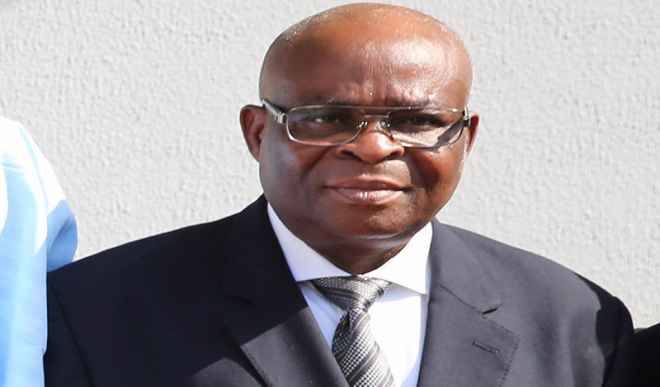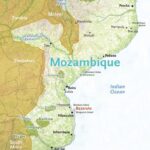Since allegations of non-declaration of asset against CJN Onnoghen became public knowledge about three weeks ago, it has been a long chain of accusations and counter accusations, interlocutory court injunctions, re-interpretation and misinterpretation of extant laws, ethnic jingoism, protests and boycott orders.
The Executive Secretary of the Anti-Corruption and Research Based Data Initiative (ARDI), Dennis Aghanya, had accused CJN Onnoghen in a petition to the Code of Conduct Bureau (CCB) of failing to declare his asset upon assumption of office in 2016. The ARDI alleged that Justice Onnoghen maintained domiciliary accounts in US dollars, British pounds, and Euro in different bank accounts in Nigeria; all of which were omitted in his asset declaration form. The amounts are in millions of dollars.
On Friday January 11, 2019, Justice Onnoghen in a statement to CCB investigators explained that his non-compliance with some aspects of his asset declaration form was “a mistake”. He said the undeclared foreign currencies found in his Standard Chartered Bank were sourced from his estacodes, including funds from his days of private practice between 1979 and 1989.
Consequently the CCB filed a 6-count charge against Justice Onnoghen before the Code of Conduct Tribunal (CCT) over alleged failure to declare his asset upon assumption of office as provided in section 15 (1) of the CCB and Tribunal Act C15; punishable under section 23 (a), (b), and (c) of the same Act.
CJN Onnoghen was absent when his case came up for hearing on Monday January 14, 2019 at the CCT sitting in Abuja. The Chairman of the CCT Justice Danladi Umar adjourned the arrangement to Tuesday January 22, 2019 to enable proper service of the summons be effected on the CJN. However, a team of 90 lawyers including over 40 Senior Advocates of Nigeria (SAN) led by Wole Olanipekun appeared as counsel to the accused; challenging the jurisdiction of the CCT to hear the case against the CJN. According to Olanipekun, the position of the law is that” where a defendant is challenging the jurisdiction of the court, the defendant does not have to be in court”.
The 90 defence lawyers have perhaps “forgotten” that the accused, Justice Onnoghen , had in the past given judgment affirming the tribunal’s power to try such cases. In a judgment delivered on the July, 2013, Justice Onnoghen held that the CCT had exclusive jurisdiction to deal with all violations contravening any of the sections of the CCB; saying provision of the CCB “expressly ousted the powers of ordinary regular courts in respect of such violations” Now, why is the large team of defence lawyers ignoring CJN Onnoghen’s previous rulings CCT’s jurisdictions? This is what you get when learned me allow their intellect to be governed by sentiments rather than knowledge. The same Onnoghen shortly after assuming office as CJN appealed to Nigerians who had useful information to blow their whistles against corrupt judges. Now that ARDI had blown the whistle as requested, why are interest groups including Onnoghen making frantic efforts to stall his trial?
While the Chairman of the CCT’s 3-man panel was ruling on the adjournment of Onnoghen’s case to January 20, 2019, a Federal High Court on Monday January 14, 2019 issued an interim injunction restraining the CCT from trying CJN Onnoghen. Justice E.N. Maha ordered for status quo that exists as at January 14, 2019 when an ex parte application was brought by a group of students of economics through their lawyer, J.C Njikonye, challenging the proceedings at the CCT in Abuja.
The Nigerian Bar Association (NBA) directed all its members to stay away from court proceedings for two days; January 29, 2019 and January 30, 2019. While those who complied said they acted in defence of the embattled CJN Onnoghen, lawyers who defied the order including Femi Falana (SAN) said the order was not binding on them because they had contracts with their clients. The insensitivity demonstrated by NBA in its boycott order shows how Nigerians regardless of their presumed learning could reduce themselves to the level of a much unlettered man on the street over a matter in which NBA is not a party.
Auspiciously, the Court of Appeal in Abuja, on Wednesday this week, rejected a requested by the suspended CJN Onnoghen seeking to stop his trial at the CCT on grounds that provisions of the law prohibits the suspension of criminal cases based on an interlocutory application. The ball is again back to CCT’s court.
In the face of the allegations against Justice Onoghen, as grievous as they were, the most honourable thing for him to have done was to quit his position as CJN. His own confession that “it was a mistake” because he “forgot”, is not only a strong reason for his conviction even in the public court of morality but also ridiculous of the revered office of the CJN. A man of this questionable character certainly lacks moral justification to preside over corrupt cases or even jail corrupt public officers including judges. Consequently, President Muhammadu Buhari on January 25, 2019 suspended Justice Onnoghen from office and appointed Justice Ibrahim Tanko, the most senior among justices of the Supreme Court as Acting CJN pending the final determination of his case.
In order to give government a bad name, Onnoghen’s suspension from office was interpreted by admirers of his “mistake” and “forgetfulness” to mean outright removal so that President Buhari’s action could be condemned for refusing to adhere to the constitution which prescribes procedures for removing a CJN. President Buhari said it all when he remarked while suspending Onnoghen from office that “In the midst of all these distracting events, the essential question of whether the accused CJN actually has a case to answer has been lost in the squabble over the form and nature of his trial. This should not be so”.
Justice Onnoghen’s case, once again, brings to mind the case of some judges whose houses were separately raided by the Department of State Services (DSS) in Abuja, Rivers, Gombe, Kano, Enugu and Sokoto states on suspicions of corruption; and cash in local and foreign currencies were recovered. Most of the judges were eventually not charged while none of those tried was successfully convicted by the courts.
The non-conviction of judges arraigned on corruption charges, the striking out of corruption cases filed against judges at various courts, the granting of ex parte application to public officers standing trial on corruption charges, and the long standing practice of issuing conflicting judgments in one case by different judges are some of the misdemeanours responsible for the abysmal collapse of the reputation of Nigerian judges. With his present case, Onnoghen completed the final phase of the image battering project started by his colleagues.
To save the country’s judiciary from the deep-rooted corrupt practices, radical measures must be taken to retrieve the institution from bribe-taking judges and their colleagues who have lost integrity and deserve no honour. May Allah (SWT) continue to guide President Buhari as he tackles those who are supposed to try and jail criminals but have themselves become suspected criminals, amin.

 Join Daily Trust WhatsApp Community For Quick Access To News and Happenings Around You.
Join Daily Trust WhatsApp Community For Quick Access To News and Happenings Around You.


